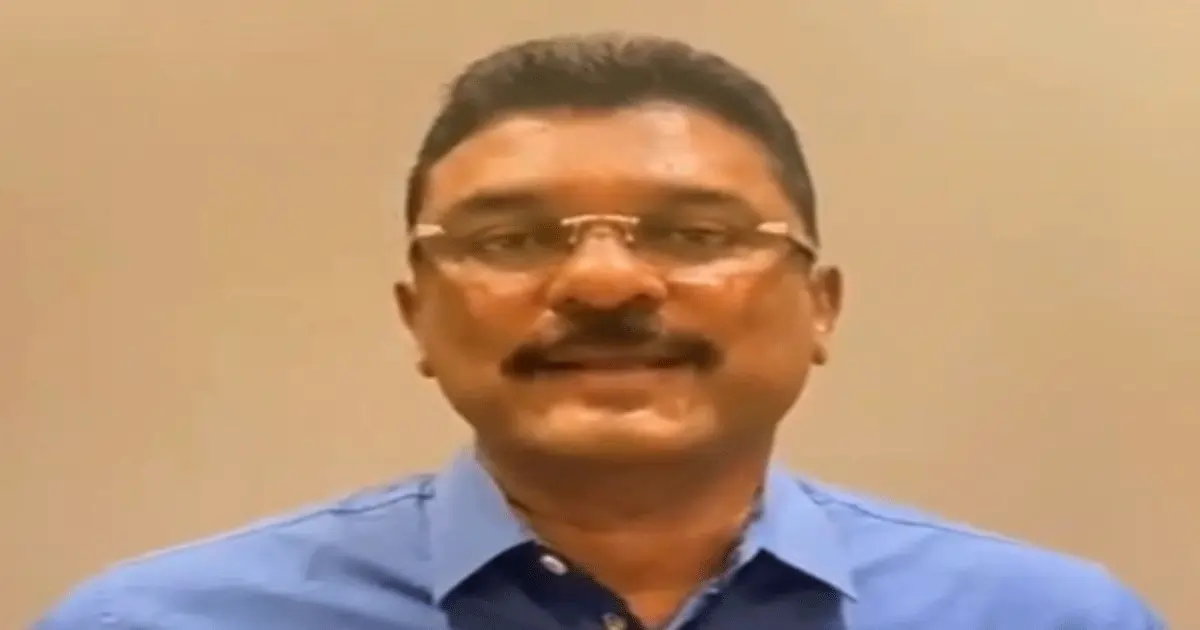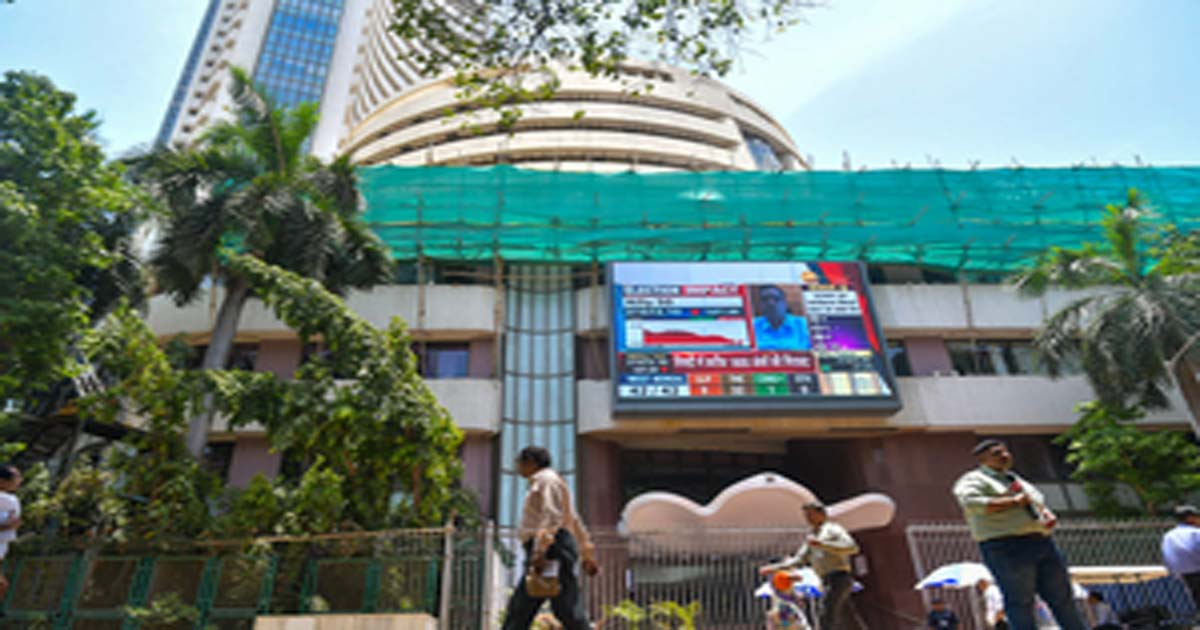Business
Maha govt invites developers to develop 3,360 acres of MSRTC land bank

Mumbai, Feb 12: Maharashtra’s Transport Minister, Pratap Sarnaik, has invited developers to participate in the development of the Maharashtra State Road Transport Corporation (MSRTC) land bank, spanning 3,360 acres.
Speaking at the NAREDCO NextGen Conclave 2025 in Mumbai on Wednesday, Sarnaik emphasised that the redevelopment of bus depots across districts, talukas, and rural areas would be undertaken on a fast-track basis.
He announced that the state government is set to float 150 to 160 tenders for the project soon.
To facilitate this transformation, renowned architect Hafeez Contractor has been appointed to prepare a development plan for MSRTC bus depots. Sarnaik highlighted the strategic importance of these land parcels and urged developers to explore commercial and residential opportunities beyond urban centers.
In a key policy move, the Minister revealed that MSRTC will be designated as a Planning Authority, streamlining project approvals under a single-window system. He added that the corporation’s technical team will be strengthened to efficiently manage the approvals and execution process.
Encouraging developers to venture beyond metro cities, Sarnaik pointed out the potential in semi-urban and rural areas, stressing that real estate growth in these regions would contribute significantly to the state’s overall development.
Sarnaik also noted that land parcels in Lonavala-Khandala and Mahabaleshwar — which are currently restricted under forest and no-development zones — would soon be included under the new Development Control and Promotion Regulations (DCPR). This change would allow for a higher Floor Space Index (FSI), unlocking new development opportunities.
Additionally, the government is working to extend land lease periods from 60 years to 99 years, making projects more financially viable for developers.
At the conclave, Sarnaik also launched the NAREDCO NextGen ‘Digital Learning Hub’, an online learning platform designed for young real estate professionals. The hub will offer insights into emerging trends, advanced technologies, and policy updates through collaborations with leading institutions, providing certification programs to nurture the next generation of real estate leaders.
Business
GST reforms prove tax moderation can boost revenues: Report

New Delhi, Dec 24: Recent reforms under GST 2.0 show that simplification and tax moderation can coexist with strong revenue growth, a report said on Wednesday, calling for freezing peak tax rates and expanding tax base through technology.
The white paper from Think Change Forum said that recent GST reforms proved wrong the long-held belief that higher tax rates are necessary to boost collections as gross GST collections rose 4.5 per cent (on-year) to Rs 1.95 lakh crore in October 2025.
The report argued that the rise in tax collection validated the principle that in high‑informality economies compliance elasticity outweighs rate elasticity. The report, however, flagged that India’s tax‑to‑GDP ratio of around 17 per cent masks a narrow direct tax base and heavy reliance on regressive indirect levies.
“High taxes — whether direct or indirect — always encourage evasion and corruption. Lower taxes widen the base and improve compliance. GST collections are rising because the economy is formalising — but we must avoid creating a new 40 per cent peak rate that undermines compliance. Ideally, GST should be restricted to just 5 per cent and 18 per cent,” said Yogendra Kapoor, author and public speaker.
The forum called for prioritising freezing peak direct tax rates, expanding the direct tax base through technology, avoiding MRP‑based taxation and completing the GST credit chain in the upcoming Union Budget.
As the compensation cess sunsets, the MRP-based taxation is prone to manipulation in a cash-heavy economy and the government should rely instead on clean, specific duties that are easier to enforce.
The Budget should outline a phased roadmap to bring petroleum, electricity and other excluded inputs under GST to restore tax neutrality and reduce cascading costs for industry, it added.
It also listed other priorities including incentivising productive reinvestment and aggressively curtailing the parallel economy.
“The Budget must strengthen enforcement against smuggling, illicit trade and tax evasion so that non-compliance becomes costlier than compliance and honest taxpayers are no longer penalised,” the report noted.
Business
Sensex, Nifty record mild gains amid positive global cues

SHARE MARKET
Mumbai, Dec 24: Indian benchmark indices made moderate gains early on Wednesday amid positive global cues, as the stock market appears to be in a consolidation phase.
As of 9.30 am, Sensex advanced 105 points, or 0.12 per cent to 85,630 and Nifty gained 40 points, or 0.16 per cent to 26,217.
Main broad-cap indices outperformed benchmark indices in terms of gains, with the Nifty Midcap 100 advanced 0.31 per cent, while the Nifty Smallcap 100 added 0.53 per cent.
Hindalco Industries, Axis Bank and Cipla were among the major gainers in the Nifty Pack, while losers included Tech Mahindra, TCS, Titan Company, Dr Reddy’s Labs and Tata Consumer.
Among sectoral indices on NSE, Media, Metal and Realty were the major gainers — up around 0.82 per cent, 0.58 per cent and 0.78 per cent respectively. Nifty IT was leading losses down 0.49 per cent.
The Nifty could extend its advance toward resistance levels at 26,202 and 26,330, while 26,000 is expected to provide near-term support, said experts.
Analysts said that the market appears to be consolidating upward as CY2025 ends. Strong domestic macros and earnings growth expectations in Q3 and Q4 of FY26 and FY27 will support the market.
The market will be resilient due to domestic inflows and DII buying but FIIs may sell rallies, preventing a sharp breakout. The revival of the AI trade in US might impact sentiments in favour of a ‘non-AI trade’ in markets like India, they added.
An additional Rs 2 lakh crore OMO by the RBI will boost liquidity and lower yields, providing positive momentum to credit growth and bank stocks. The RBI on Tuesday announced a fresh set of steps to inject a large amount of money into the banking system to ease tight liquidity conditions.
Asia-Pacific markets traded flat with a positive bias, with several indexes set to close early in lieu of the Christmas Eve holiday.
In Asian markets, China’s Shanghai index advanced 0.24 per cent, and Shenzhen edged up 0.31 per cent, Japan’s Nikkei added 0.06 per cent, while Hong Kong’s Hang Seng Index gained 0.08 per cent. South Korea’s Kospi added 0.12 per cent.
The US markets ended mostly in the green zone overnight, as Nasdaq advanced 0.57 per cent, the S&P 500 edged up 0.46 per cent, and the Dow moved up 0.16 per cent.
On Tuesday, foreign institutional investors (FIIs) sold equities worth Rs 1,795 crore, while domestic institutional investors (DIIs) were net buyers of equities worth Rs 3,812 crore.
Business
Indian stock market opens lower, IT stocks lead losses

Mumbai, Dec 23: Indian benchmark indices opened in the red zone on Tuesday, weighed down by losses in the IT stocks after artificial intelligence (AI) stocks in the US showed revival.
As of 9.30 am, the Sensex declined 159 points, or 0.19 per cent to 85,407 and the Nifty lost 32 points, or 0.13 per cent to 26,139.
Main broad cap indices showed divergent trends, with the Nifty Midcap 100 down 0.18 per cent, while the Nifty Smallcap 100 added 0.07 per cent.
ONGC, Tata Steel and NTPC were among the major gainers in the Nifty Pack, while losers included Max Healthcare, TCS, Tech Mahindra, Asian Paints and ICICI Bank.
Sectoral indices on NSE were trading in the mixed zone, with IT leading losses down 1.21 per cent. Oil and gas as well as metal were the major gainers, up around 0.43 and 0.41 per cent, respectively.
Immediate resistance for Nifty is placed at 26,300–26,350, while key supports are located at 26,000–26,050 zone, said analysts.
Market watchers found two factors to affect the market in the near term, including positive macros or fundamentals and AI trade revival. Positive macro indicators may embolden bulls to push Nifty and Sensex to new highs. But the strong AI trade revival is a mild negative externally which may delay the anticipated FII outflow reversal, they said.
Defence stocks are seemingly recovering, with more room for growth in the segment, while the IT sector has also turned resilient, analysts said.
Asia-Pacific markets showed moderate gains on Tuesday, after AI trade lifted major Wall Street indexes overnight.
In Asian markets, China’s Shanghai index advanced 0.34 per cent, and Shenzhen edged up 0.65 per cent, Japan’s Nikkei added 0.02 per cent, while Hong Kong’s Hang Seng Index gained 0.33 per cent. South Korea’s Kospi added 0.45 per cent.
The US markets ended mostly in the green zone overnight, as Nasdaq advanced 0.52 per cent, the S&P 500 edged up 0.64 per cent, and the Dow moved up 0.47 per cent.
Investors are keen on rising geopolitical tensions between the US and Venezuela and delays in the Russia-Ukraine peace negotiations. The killing of a Russian army general in a bomb attack on Monday raised concerns over the peace process, lending support to crude oil prices.
On Monday, foreign institutional investors (FIIs) sold equities worth Rs 516 crore, while domestic institutional investors (DIIs) were net buyers of equities worth Rs 3,898 crore.
-

 Crime3 years ago
Crime3 years agoClass 10 student jumps to death in Jaipur
-

 Maharashtra1 year ago
Maharashtra1 year agoMumbai Local Train Update: Central Railway’s New Timetable Comes Into Effect; Check Full List Of Revised Timings & Stations
-

 Maharashtra1 year ago
Maharashtra1 year agoMumbai To Go Toll-Free Tonight! Maharashtra Govt Announces Complete Toll Waiver For Light Motor Vehicles At All 5 Entry Points Of City
-

 Maharashtra1 year ago
Maharashtra1 year agoFalse photo of Imtiaz Jaleel’s rally, exposing the fooling conspiracy
-

 National News1 year ago
National News1 year agoMinistry of Railways rolls out Special Drive 4.0 with focus on digitisation, cleanliness, inclusiveness and grievance redressal
-

 Maharashtra1 year ago
Maharashtra1 year agoMaharashtra Elections 2024: Mumbai Metro & BEST Services Extended Till Midnight On Voting Day
-

 National News1 year ago
National News1 year agoJ&K: 4 Jawans Killed, 28 Injured After Bus Carrying BSF Personnel For Poll Duty Falls Into Gorge In Budgam; Terrifying Visuals Surface
-

 Crime1 year ago
Crime1 year agoBaba Siddique Murder: Mumbai Police Unable To Get Lawrence Bishnoi Custody Due To Home Ministry Order, Says Report












